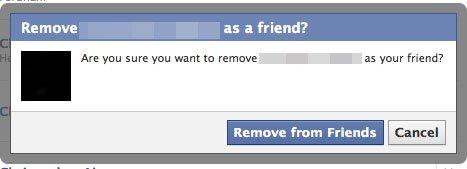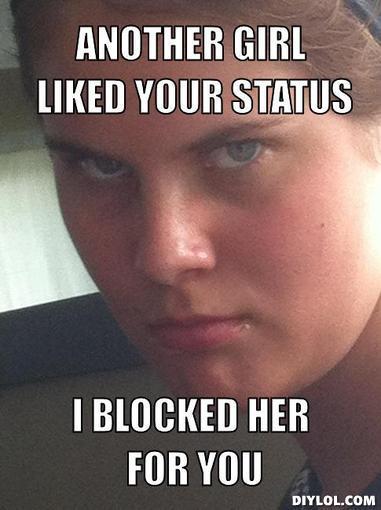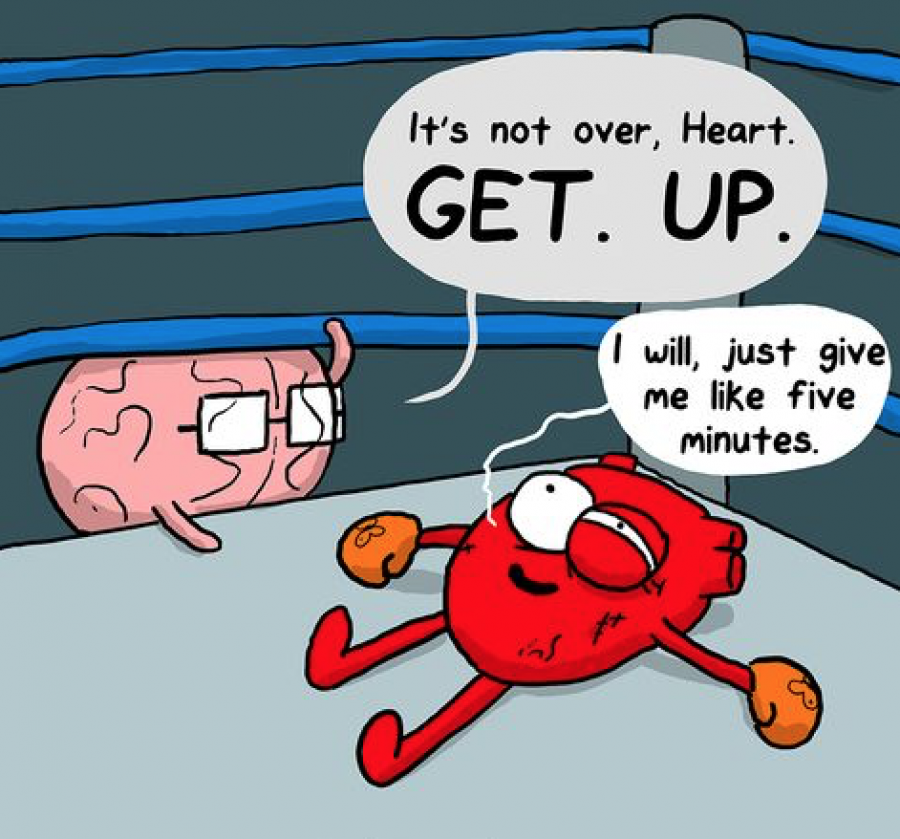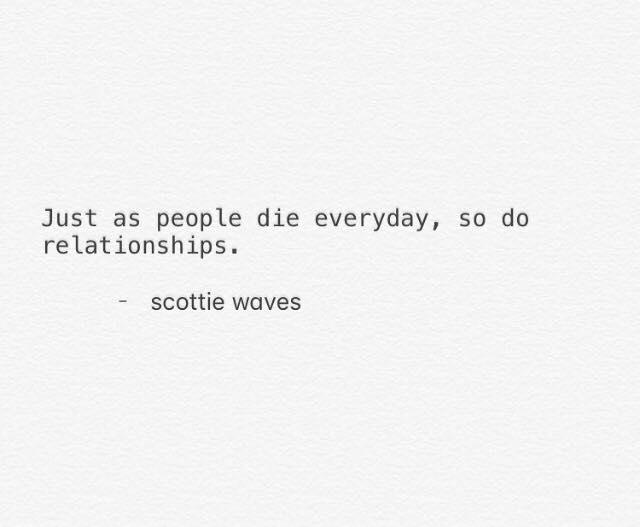
Leaving the Heartbreak Hotel online & offline.
Heartbreak is something that has happened to most of us at some point in our lives. This article discusses how we need to deal with heartbreak both online and offline in a world in which social media are everywhere.
Heartbreak is a common issue in society, yet not a lot of research is dedicated to finding ways to help individuals move on with their lives. The feelings, thoughts and emotions related to heartbreak can be difficult to deal with and still being connected to one another on social media can make moving on even more difficult.
Surprisingly enough, it was those same social media that provided me with the above video, which I found on Facebook, that gives the viewer tips on "how to move on from your ex", i.e. deal with heartbreak. This made me wonder: why do we even need these 'how-to' videos regarding this subject?
Like many of us, I’ve experienced heartbreak as well. It even went so far that I needed therapy to help me get past it. I clearly remember my therapist explaining to me that what you experience after having your heart broken is similar to the grief you feel after someone close to you passes away. However, what we didn't discuss back then, was the fact that we live in a day and age in which social media have a prominent place in our lives. This means you don't just need to get on with it offline, but online as well. For the latter, there are a few steps you need to consider.
Heartbreak? To unfriend or Not?

Are you absolutely sure you want to remove your friend from Facebook?
When searching for information on this topic, I came across this article by Gershon (2011) that discussed how interviewees in her research (‘un-friend my heart: facebook, promiscuity, and heartbreak’) explained that Facebook transformed them into anxious, jealous and monitoring people, which they didn’t want to be. What followed from this is that it was not recommended to have your partner as a friend on Facebook.
I immediately wondered how many of us actually take this measure, and un-friend one another, when we start noticing these behaviors in ourselves. It would be just as plausible that we would make up some reason as to why it's beneficial to stay friends online.

Controlling Freak Mode On
Yet when we break up, one of the first things that happen is that we develop an obsessive lurking behavior, in order to find out what the other is up to. This is also known as cyberstalking.
Phases of heartbreak
There are several phases one goes through after a relationship has ended. I will therefore describe each of these phases and analyze the steps that are suggested in 'how-to' videos relating to heartbreak.
Normal grief includes feelings such as sadness, anger, guilt, anxiety, loneliness, fatigue, helplessness, and shock.
Worden (2009) describes grief as being reflected in the feelings, thoughts, behaviors, and physical body of the bereaved. Normal grief includes feelings such as sadness, anger, guilt, anxiety, loneliness, fatigue, helplessness, and shock.
It can also include feelings of emancipation and relief. The thoughts of the bereaved may include disbelief, confusion, preoccupation, a sense of the presence of the deceased, and even hallucinations.

Mind helping the heart
The behaviors of the bereaved include interruption of normal sleep and appetite, withdrawal, and crying. Physical manifestations of grief might include tightness in the chest or stomach, muscular weakness, breathlessness, and lethargy. Do you recognise any of these symptoms for heartbreak?
Four tasks and six processes.
Worden further (2008, pp. 39–53) offers four tasks of mourning:
TASK I: To accept the reality of the loss. TASK II: To process the pain of grief. TASK III: To adjust to a world without the deceased (includes external, internal, and spiritual adjustments). TASK IV: To find an enduring connection with the deceased in the midst of embarking on a new life.

Relationships die too
Rando (1993) outlines six processes of mourning and ties them to three phases of grief. During the avoidance phase, the bereaved must (1) recognize the loss; during the confrontation phase, the bereaved must (2) react to the separation, (3) recollect and re-experience the deceased/relationship, (4) relinquish the old attachments to the deceased and the old assumptive world, (5) lastly, during the accommodation phase, the bereaved must readjust to move adaptively into the new world without forgetting the old, and (6) must reinvest (Rando, 1993, p. 45)
Don't call, text, email or send messages on social media
Now for this case, I’m only focussing on the steps that 'how-to' videos and articles suggest one should take with regards to social media, in order to deal with heartbreak. It seems that these steps are intended to stimulate you to stay strong, focus on healing and the future.
They include for you to cut ties with your ex and stay away from that phone. Don’t call, text, email or send messages on social media. Don’t look your ex up on Facebook or Instagram. In other words, cyberstalking is not allowed.
Moreover, don’t “vaguebook” - which means posting vague statuses on social media’ for attention. Delete all photos on social media accounts and if needed block or delete your ex.
Move on from a heartbreak online too.
Now for someone going through a heartbreak in this day and age, these steps may seem harsh, cruel, ridiculous and even impossible. But if a heartbreak causes the same process as grief does, I could understand why people need help on what to do and how to deal with a heartbreak both online and offline.
These tips are at your fingertips and therefore you can deal with your situation in private, which is easier than going to therapy. Moreover, I believe these articles help provide a feeling of not being the only one dealing with heartbreak. Otherwise, there wouldn’t be a reason to make them in the first place.
So to those going through this: hang in there, but don’t stay too long in the heartbreak hotel!

The art of letting go and moving on
References
Gershon, I. (2018). Un-Friend My Heart: Facebook, Promiscuity, and Heartbreak in a Neoliberal Age.
Worden, J. (2009). Grief counselling and grief therapy. London: Routledge.
Rando, T. (1995). Treatment of complicated mourning. Champaign, Ill.: Research Press.
Hefren, J. and Thyer, B. (2012). The Effectiveness of Guided Mourning for Adults with Complicated Mourning. Journal of Human Behavior in the Social Environment, 22(8), pp.988-1002.
wikiHow. (2018). How to Be Strong After a Breakup. [online] [Accessed 23 Mar. 2018].
YouTube. (2018). The #1 Cure for Your Broken Heart - Matthew Hussey, Get The Guy. [online][Accessed 23 Mar. 2018].